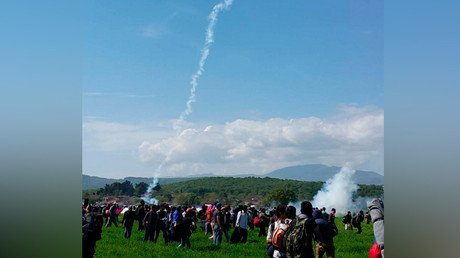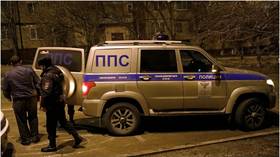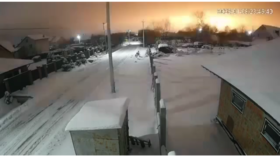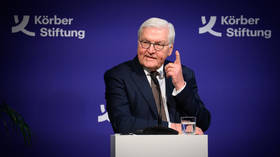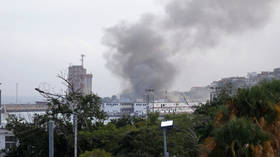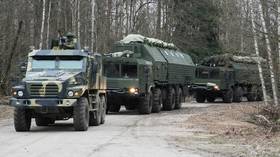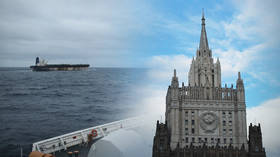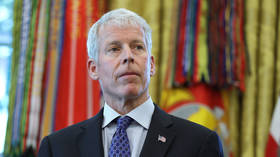‘Macedonian border police detained & beat protesting refugees’ - MSF
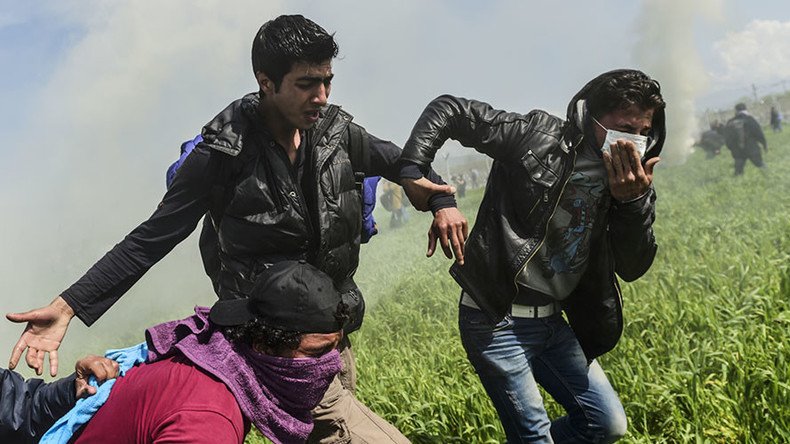
Hundreds of refugees turned to clinics operated by Doctors Without Borders (MSF) for treatment after a border crackdown by Macedonian police. MSF said around 30 children were teargassed while some reported that they were seized and beaten for an hour.
Children as young as five needed medical attention in the Idomeni camp in Greece after the Sunday clashes, during which the police used tear gas and rubber pullets to suppress a protest, MSF reported.
Two young patients said they were taken into Macedonian territory along with 10 other people and beaten for an hour by police.
“The MSF clinic has been full all day. Three children were brought in with head injuries due to rubber bullets. People outside were shouting and many of them were carrying rubber bullets in their hands,” said Conor Kenny, an MSF doctor in Idomeni.
Some of the injuries were received during a stampede that followed the police action, he said.
“A pregnant woman from Syria came into the clinic with her two children; she told me she was close to the border when tear gas was used to disperse the crowd, people started to run and she fell down,” the doctor said.
MSF said its mobile teams and doctors at the camp clinic treated 300 people in the wake of the clashes, among them 200 with respiratory problems after being subjected to teargas.
Some came with bruises on their bodies and legs, and arms, claiming they have been beaten by the FYROM police inside the border,” MSF spokesman Jonas Hagensen told RT.
“Others had injuries from rubber bullets. And also others had injuries, while they were running away from the tear gas, they fell over and somebody ran over them… And then, lastly, we referred seven patients to the local hospital with more serious injuries like open wounds and suspected fractures.”
While most of those injured were men, the MSF also treated a “high number” of women and children, Hagensen added. “I would say around ten to 15 children under five years old and around 30 children between five and 15.”
The organization says European governments are mishandling the crisis, which leads to an escalation of violence.
“What we see is the inevitable result of thousands being trapped in Greece, a country unable to respond to the humanitarian and protection needs of those in search of safety in Europe,” stated Jose Hulsenbek, MSF’s Head of Mission in Greece.
"What people need is to be treated with dignity, not violence or unpredictable border closures and more uncertainty. This absurd humanitarian crisis created by European states’ policies is becoming more unbearable by the day.”
The clashes erupted after a group of some 500 asylum seekers tried to cross the barbed-wire fence on the Greek-Macedonian border and were stopped by Macedonian police. At least 15 officers were reported injured in the clashes as angry refugees pelted them with stones.
The EU is trying to deal with the biggest inflow of refugees since World War II, with over a million arriving to Europe last year alone. Greece, a country suffering from budget cuts and economic recession, is the primary destination for the refugees arriving to Europe through Turkey and has to keep them trapped as its neighbors closed borders.
Brussels has struck a bargain with Turkey for help in stemming the flow in exchange for financial and political pay-off. Skeptics say this would only result in smugglers ferrying people through Libya to Italy.
